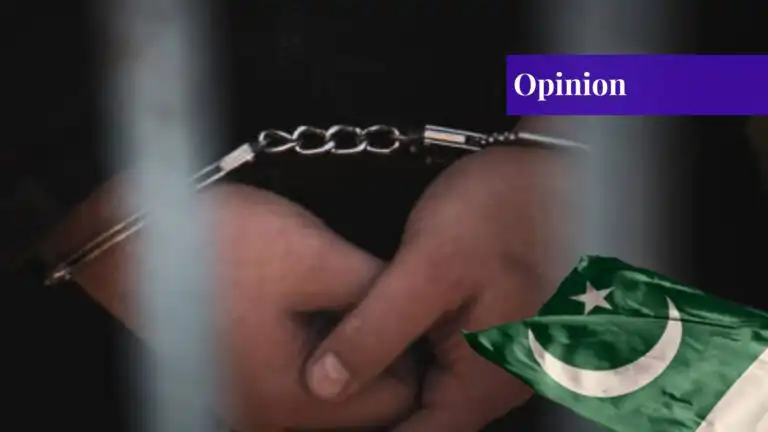A just and equal society cannot be achieved by completely eradicating and downplaying extremist ideologies but also by promoting education, awareness, and positivity. A tolerant and terror-free society shines over the horizon by building a better life for everyone. However, interfaith harmony, social bonding, and inclusive and diverse communities help in forming an exemplary society. Moreover, tolerance is a positive force employed by the citizens of Pakistan as well as of the global world to subjugate terrorism and other similar evil forces by forming inclusive communities, and alliances.
Pakistan’s Fight Against Terrorism
Terrorism is a menace not just for Pakistan but for the whole of humanity. Every year, thousands of civilians fall prey to its clutches all over the world. Its ideology is rooted in extreme forms of negativity and dislike of particular factions or entities, such as state, government, religion, sect, or parallel domains. Tackling terrorism daily has become a norm for the governments and nations of the world at large, as it poses serious repercussions and hampers the daily lives of citizens as well as communities. Pakistan is among the most vulnerable countries against terrorism, taking a horrendous toll on the lives of ordinary civilians as well as security personnel.
The rapid spread of terrorism in the global world order has led to the wastage of resources such as money and human capital, which can be utilized for healthcare, education, infrastructure development, and societal upbringing. Countries all over the globe have formed alliances, treaties, and covenants and deepened diplomatic relations to counter terrorism and its root causes.
Moreover, the money spent on mitigating terrorism in the global world has been surging over some time. In the case of South Asia, especially Pakistan, and the Middle Eastern countries, terrorism has spread its unholy ideologies to manipulate, brainwash, and employ thousands of ordinary people, as so-called “jihadists” to provide their horrendous services. Due to unequal opportunities, and lack of economic stability, they fall into wars and conflicts they did not wish for. These people, many times affected by injustice, ignorance, suppression, and exploitation, fall into these false and manipulative dogmas.
Pakistan’s commitment to showcasing the utmost priority for eliminating terrorism has played a robust role, whether from its soil or foreign land. Operations such as Zarb-e-Azb and Radd-ul-Fasaad are key examples to highlight the unwavering commitment and resilience. As of September 30, 2024, Pakistan is among the top contributors to the United Nations peacekeeping forces bypassing China, while competing with India, both the biggest armies and economies in the global world.
Notwithstanding Pakistan’s commitment to dismantling terrorism, it is open to all being a smaller economy. Moreover, according to the Ministry of Foreign Affairs, some 181 peacekeepers have embraced martyrdom while serving and saving civilians’ lives. Thousands of Pakistan Army personnel are stationed in foreign countries such as Saudi Arabia, the UAE, and Qatar, to name just a few, for various purposes, one of which also includes eradicating terrorism. Pakistan has an impartial foreign policy regarding its stance on fighting terrorism to its roots.
The situation in recent years has created a mind-boggling condition for Pakistan’s population, especially those residing in the provinces of Balochistan and the KP, as malicious practices have surged from the banned outfit TTP militants, which Pakistan accuses Afghanistan of providing haven. The cowardly acts against the civilians have gained them much criticism from international organizations while strengthening support and sympathy for Pakistan.
Role of Education in Countering Extremism
Education is a panacea for all existing problems in Pakistan as well as in the global world. By promoting the inclusive education system in the areas worst hit by terrorism and extremism, Pakistan can enhance the lives of its citizens and communities. What is more important to highlight is the role that education played after the death of the German dictator Adolf Hitler, who built the basis of extremism and fascism against a particular race in German society. Today, Germany stands tall amongst the flourishing economies of the world, disproving that extremism. The education system of Germany is considered one of the best in the world, creating opportunities not just for its citizens but for foreign people. Pakistan should create a society where the birth of extremism should be nullified at the earliest to form a just, equitable, and inclusive society for all regardless of their gender, religion, sect, caste, etc.
Socioeconomic Factors Influencing Intolerance and Radicalization
Many people in Pakistan are the target of dogmatic radicalization due to illiteracy and ignorance. Pakistan’s literacy rate is startling, which is amongst the lowest in the region. Uneducated people fall for these traps, which further lead to illegal practices. Ordinary people are many times lured and seduced by militants for lucrative offers, and that creates commitment, risking their lives as well as their families’. Once they find themselves in this vicious cycle, then leaving them results in losing their families and loved ones. However, this case is not always the same for everyone; many join on their own just because their extremist ideologies match with their like-minded counterparts.
Digital Media and Narratives of Peacebuilding
New media has created two dimensions, one for peacebuilding and the other for promoting extremism and radicalization on a digital level. However, in-person radicalization is more difficult than digital radicalization. People, especially youth, are easily brainwashed and manipulated, which creates serious problems. In Pakistan, digital media should be impartially monitored to have check and balance policies against radicalization. While digital media has its drawbacks, it can be used for peacebuilding to promote de-radicalization and awareness against intolerance and terrorism. It is crucial to keep in mind the collective role of citizens, communities, NGOs, and the government to tackle this menace.
Counterterrorism Policies and Their Effectiveness
Although peaceful dialogue is considered one of the best mediums to resolve conflicts and come to an agreement, in the case of militants, it has been failing for years as militants always have conflicting interests with the government, creating a stalemate position, and the same cycle goes on. Military action, covert intelligence gathering, digital media check, and balance policies, and most importantly, cyber security measures are necessary against militants for counterterrorism.
The Role of AI and Technology in Counterterrorism
Advanced technology and AI have changed the dynamics of conventional warfare. The right use of AI in countering terrorism can help track suspects and militants. AI can easily detect and alter the extremist content circulating online, and in possible scenarios, if needed, it can take it down. It further helps in de-radicalization and hampers the recruitment of terrorists. AI and advanced technology can help conduct targeted attacks with the help of drones and similar technologies on the militants’ facilities, and minimize the use of armed personnel, who sometimes pay the price by losing their lives.
Legal and Policy Frameworks for a Terror-free Pakistan
Policies similar to the National Action Plan (NAP) are necessary to dismantle terrorism and intolerance and form an everlasting society. A ban should be imposed on all forms of terrorist organizations that seek to pose a threat to the sovereignty of Pakistan and the global world. Coordination among the citizens, communities, and government should also be the priority to consider to curb terrorism from its root causes. Strengthening the anti-terror laws in the country is mandatory to curb militants and terrorism at large. A comprehensive measure can be helpful in creating a terror-free Pakistan by strongly advocating for intelligence sharing between law enforcement agencies about militants and their hideouts.
If you want to submit your articles and/or research papers, please visit the Submissions page.
To stay updated with the latest jobs, CSS news, internships, scholarships, and current affairs articles, join our Community Forum!
The views and opinions expressed in this article/paper are the author’s own and do not necessarily reflect the editorial position of Paradigm Shift.






